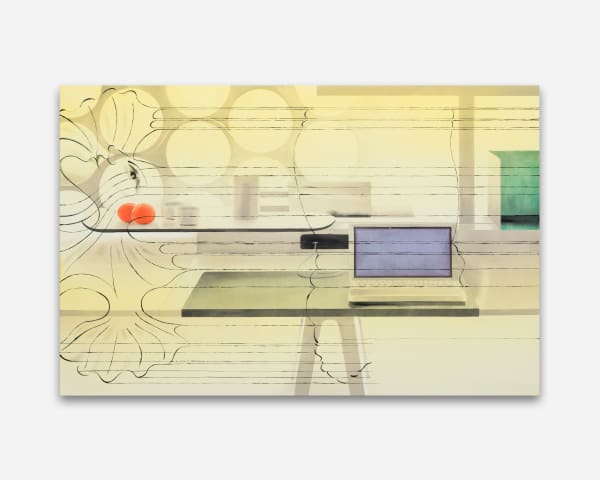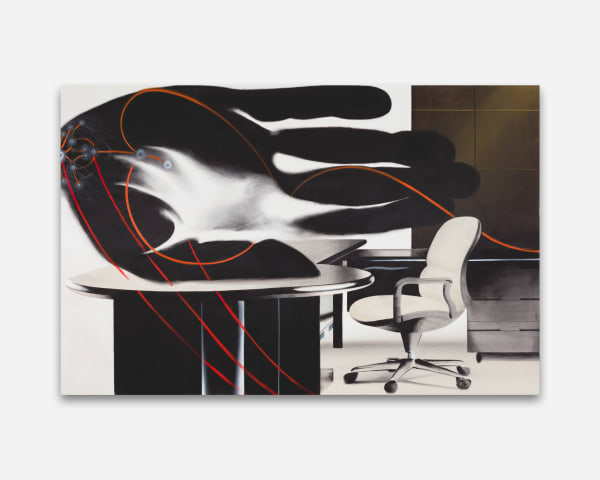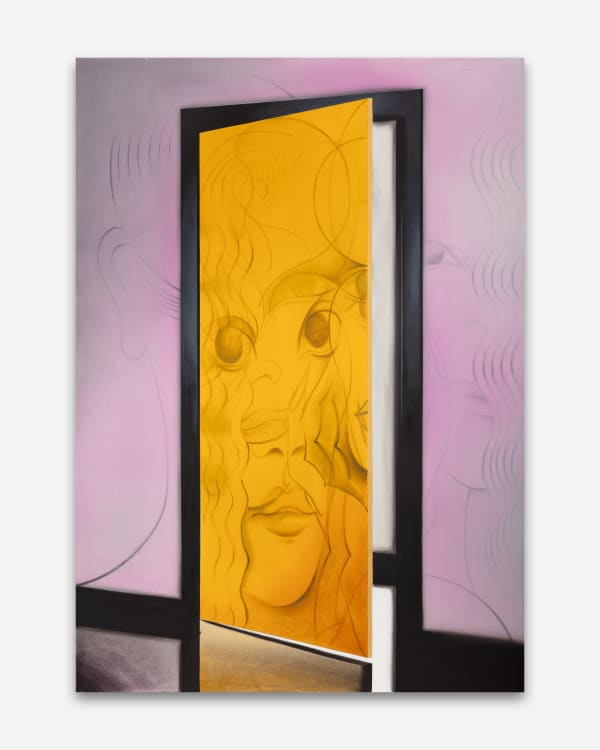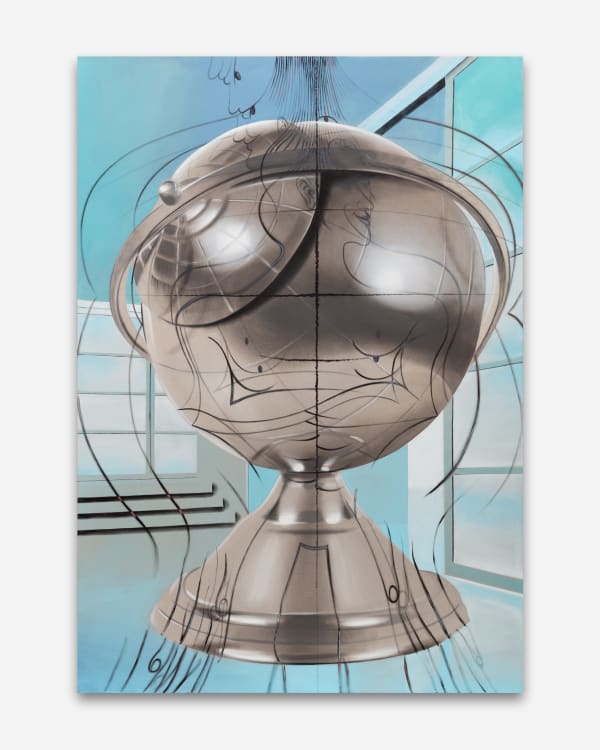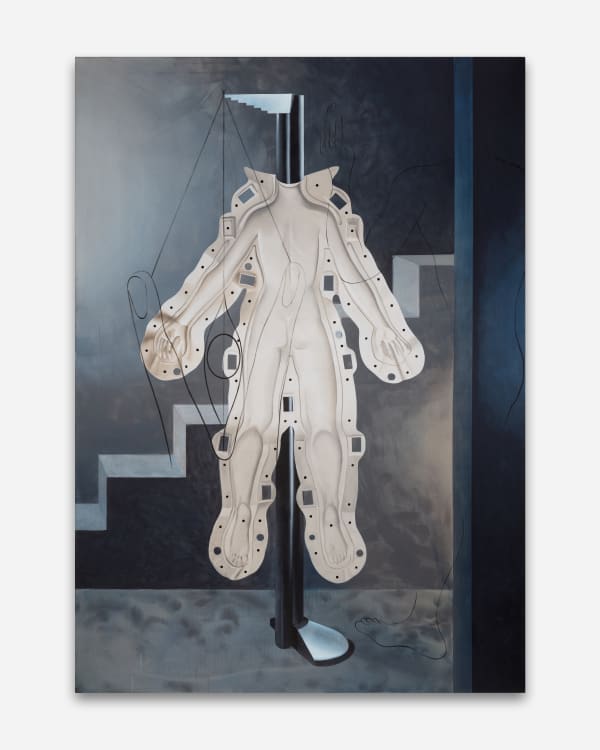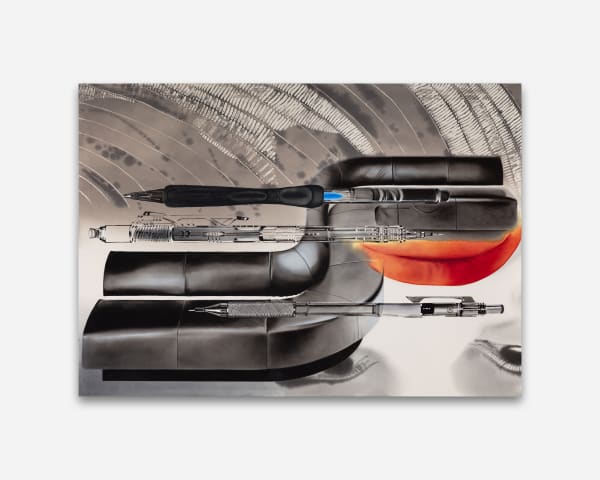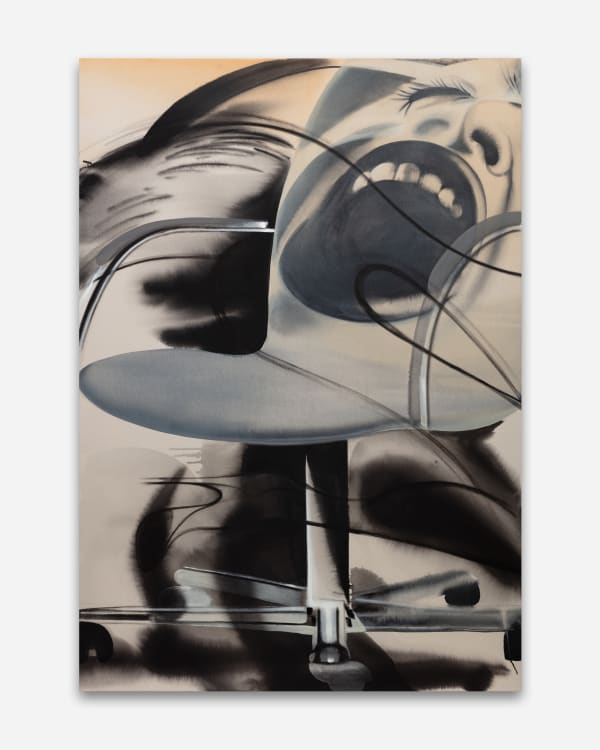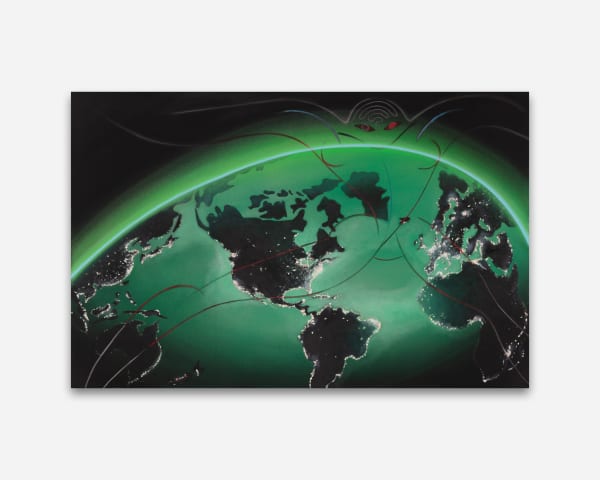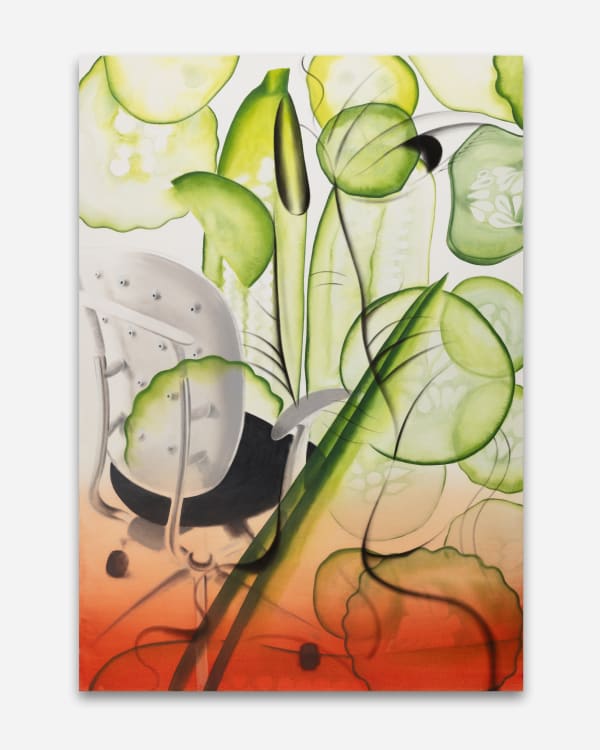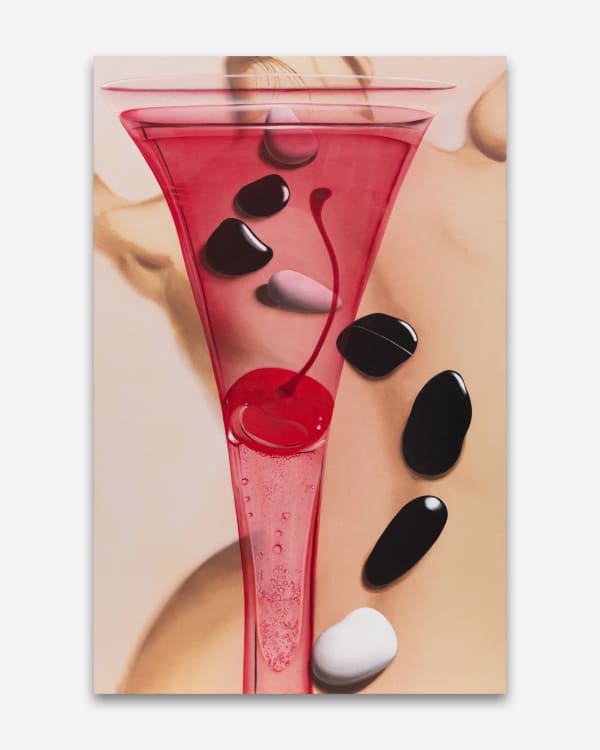Office Illusions: Jacopo Pagin
-
 Jacopo Pagin
Jacopo Pagin
Anthropocene, 2024 -
 Jacopo Pagin
Jacopo Pagin
Technophobic office, 2024 -
 Jacopo Pagin
Jacopo Pagin
Foresee a desire and decide a destiny, 2024 -
 Jacopo Pagin
Jacopo Pagin
Global Safety, 2024 -
 Jacopo Pagin
Jacopo Pagin
Good skin for everyone, 2024 -
 Jacopo Pagin
Jacopo Pagin
Koka, 2024 -
 Jacopo Pagin
Jacopo Pagin
On mute, 2024 -
 Jacopo Pagin
Jacopo Pagin
Pax Aliena, 2024 -
 Jacopo Pagin
Jacopo Pagin
Synchronized and emolliated, 2024 -
 Jacopo Pagin
Jacopo Pagin
Void to void, 2024
Make Room is pleased to present Office Illusions, Belgium-based Italian artist Jacopo Pagin’s second solo show with the gallery.
In Office Illusions, Jacopo Pagin weaves together temporal layers and symbolic landscapes, investigating the intersections between nostalgia, power, and the illusory promises of recent history. The exhibition engages with a specific cultural moment—the post-Cold War era—when the U.S.-led West proclaimed the "end of history." Marked by globalization, unipolarity, neoliberalism, and faith in technology, this period once represented the belief in a future of endless progress and control.
The exploration of office forms and spaces—those generic, impersonal environments where the narratives of order, management, and power were constructed—lies at the heart of the exhibition. For Pagin, these mythologized spaces and their desks, computers, and sterile interiors point to fragmented utopian aspirations throughout the 1990s and 2000s when the world was believed to be controllable from behind a screen. But the spaces are also deeply ironic, their promises hollowed out by the realities of the challenges, confusions, and conflicts of the present.
Through Pagin's large-format paintings, viewers are immersed in surreal, hyper-anthropized scenes bursting with fragments of the past that oscillate between comfort and disorientation. The depicted objects—desks, chairs, computers—are drawn from aesthetics of vintage design magazines, fashion, and advertising that once embodied success, stability, and the allure of corporate life. Now, Pagin’s distorted, dreamlike compositions reimagine the objects as portals to psychic dimensions where the boundaries between time, memory, and reality dissolve. The symbolic office chair in Technophobic Office particularly takes center stage, embodying the contradictions of the era. More than just a practical object, the chair serves as a totem of administrative power and a vehicle for exploring abstracted layers of work, finance, and control.
The exhibition also features an installation of standardized black office chairs with wheels, deliberately generic and corporate in appearance. Visitors are invited to sit in the chairs and move through the space by playfully navigating the paintings. While rolling from painting to painting, visitors engage with the exhibition as both participants and observers, their movement reflecting the mobility and detachment characterized by the very systems of power that Pagin investigates.
Pagin’s works employ large acrylic washes and intricate oil details on canvas to create a duality of surrealism and abstraction. Up close, the brushstrokes become looser, emphasizing the materiality of the paintings. Yet from a distance, the compositions reveal recognizable objects that feel both familiar and strange. In paintings such as Synchronized and Emolliated, the artist’s use of transparency and collage further distorts the linear perception of time by layering moments of the past and present in surreal forms that embody the contradictions of memory and perception. The imagery exposes the fragility beneath the polished surface. Through this interplay of rigid, man-made elements and more fluid, organic forms, Pagin visually communicates the tension between the cold, calculated structures of neoliberal progress and the unpredictable, natural flow of life.
Office Illusions ultimately presents a critical reading of Western ideals—a glimpse into the seductive aesthetics of power and their enshrined contradictions while reflecting on collective perceptions of time and different cultural and historical reflections. Pagin's practice, particularly in this show, emphasizes not only individual, idiosyncratic memory but also the collective memory that shapes our understanding of history. The impersonal aesthetics—familiar and nostalgic—evoke a collective remembrance of foreseeing a bright future that we now recognize as inconsistent, rhetorical, and speculative, favoring one-sided power. By traversing the ghostly remnants of recent cultural history, Pagin urges us to confront the illusory nature of progress and the limits of our constructed narratives.
Click Here to View Jacopo Pagin's Monograph: THE SNIPER IN THE BRAIN

